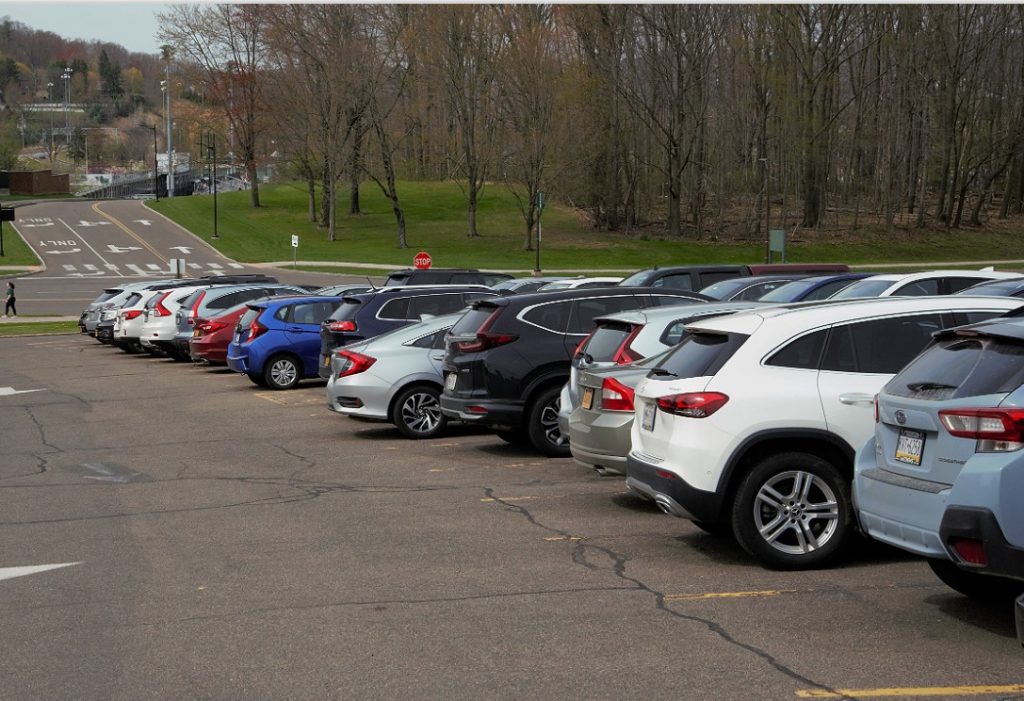Binghamton University has recently announced changes to campus parking fees, which include a new $10 fee for appealing parking tickets.
The rule changes were first proposed by BU’s Transportation and Parking Services (TAPS), and then modified by the Parking and Transportation Stakeholders Group (PTSG) before being approved and passed during a recent BU Council meeting. The PTSG consists of a mixture of faculty, staff and students, with the chair of the group as Brian Rose, the vice president for student affairs. In addition to the appeal fee, other rule changes include higher fines for parking in unauthorized spots and a $5 nuisance fee for those who park in the garage without paying.
Rose, who presented the changes at the BU Council meeting on behalf of the PTSG, explained some of the University’s motives behind raising and adding fees.
“We operate the parking on campus as an auxiliary service, which means it is a self-supporting operation,” Rose said at the Council meeting. “The urban legend is that we’re raking in money, the reality is we don’t actually yield enough money to pay all the costs associated with maintaining the lots we have right now.”
Tanya Husick, the executive director of BU’s TAPS, commented on the factors behind the recent changes to parking fees made by the PTSG.
“Currently the deferred maintenance is in excess of [$2.9 million],” Husick wrote in an email. “Changes made to the parking citation amounts are meant to deter inappropriate behavior.”
Some students expressed disapproval of the changes made by the University, with regard to the appeal fee in particular.
Mouhamadou Anne, a sophomore majoring in systems science and industrial engineering, said the University could be more aware of the extenuating circumstances students face while parking.
“I have received a ticket before for not being able to move my car out of a spot because of a snowstorm,” Anne said. “I shouldn’t have to pay an extra fee to appeal a charge like that in the future.”
Rose suggested that the inclusion of the appeal fee by the TAPS office is warranted due to the high number of appeals the office has to handle on a regular basis.
“We deal with more than 1,200 appeals [every year],” Rose said. “The vast majority of appeals are from people who don’t like to pay, it is not that they actually have evidence that they didn’t commit a violation. So the idea is to try to disincentivize people from filing an appeal just so they have the opportunity [to not pay].”
A few students are unsure if the changes made to parking fees will be enough to address other issues that students frequently face with on-campus parking.
Mevindra Sawh, an undeclared sophomore, questioned whether the proposed changes will address the overcrowding of lots.
“I think it is necessary to build an additional parking garage so that both resident students and commuters can have more access to parking spaces,” Sawh wrote in an email. “It is very hard to find a parking spot during the day with the commuters taking up most of them.”



